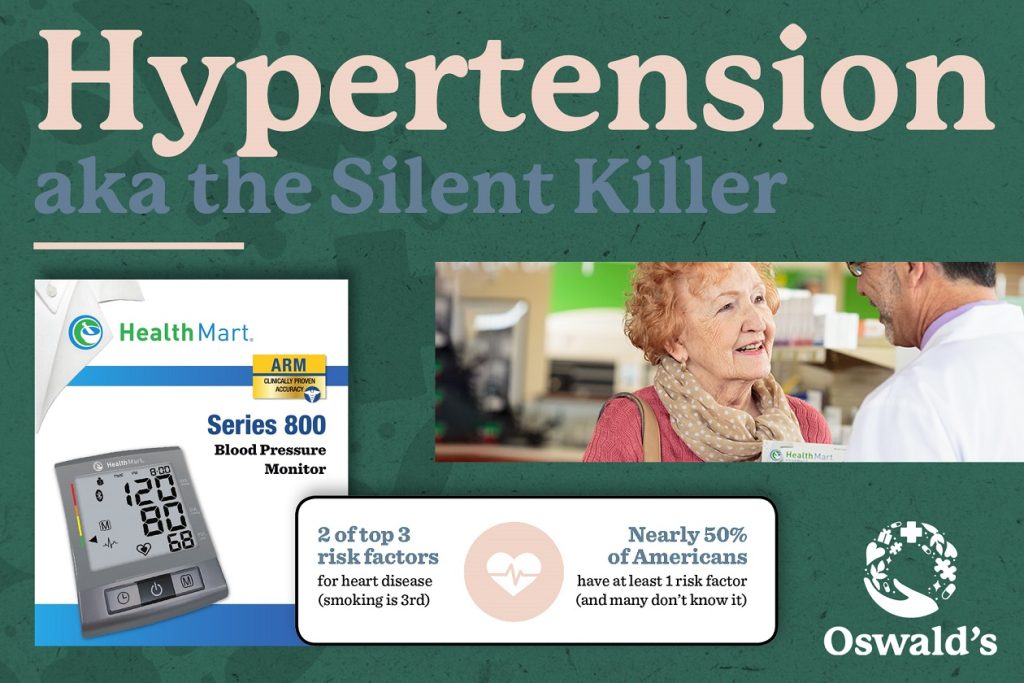Hypertension is a diagnosis of consistently high blood pressure. Blood pressure is the pressure of blood pushing against your artery walls as it pumps blood from your heart to the rest of your body. Blood pressure is measured using two numbers. The top number is your systolic pressure which is the pressure in your arteries when the heart beats. The bottom number is your diastolic pressure which measures the pressure when your heart rests. A normal blood pressure level is less than 120/80 mmHg.
Daily Blood Pressure
Blood pressure naturally fluctuates throughout the day. Your blood pressure is usually lowest during sleep, rises throughout the day, and starts to fall again in the late afternoon. When testing blood pressure, it’s essential to test at the same time each day for accuracy. Weather can also affect your blood pressure. It is usually higher in the cold and lower in the heat. Smoking, drinking caffeine, and exercising can affect your body temperature.
It’s a good rule of thumb to wait 30 minutes before checking your blood pressure if you participate in any of those activities. Daily stress can increase your blood pressure. Try to rest and relax for at least 5 minutes before testing blood pressure. OTC cold medications that contain decongestants can cause an increase in blood pressure.
If you are someone with hypertension, consult with a healthcare provider as these medications can be dangerous to take. A full bladder can increase your blood pressure as well so be sure it is empty before testing. Keep all this in mind and test when you feel the most optimal.
What is Hypertension?
Hypertension is a diagnosis when your blood pressure is consistently above normal. There are 2 sets of guidelines healthcare providers may use to determine this diagnosis. The Joint National Committee on Prevention, Detection, Evaluation, and Treatment of High Blood Pressure states a consistent blood pressure over 140/90 mmHg is considered hypertension.
The American Heart Association states a consistent level of 130/80 mmHg is subject to a diagnosis of hypertension. If you are someone who has already been diagnosed with hypertension and is on medication, be sure you monitor your levels daily and that they are below these levels.
High blood pressure usually has no warning signs or symptoms and many people do not know they have it. That is why it is often referred to as “the silent killer.” Measuring your blood pressure is the only way to know where your levels lie. At-home monitors can be purchased at most drug stores.
It is important to check daily at the same time when you feel relaxed, and no stress is on the body. For the most accurate readings, have both feet planted on the ground and your arm resting at heart level. Do not speak, eat, or drink while testing.
How Hypertension Affects Health
Hypertension can damage your health in many ways. It can affect various organs such as your heart, brain, kidneys, and eyes. It can lead to heart attacks, heart failure, and stroke. These happen suddenly and unexpectedly so it is important to know where you stand when it comes to your blood pressure. The good news is that high blood pressure is manageable and preventable. Prevent hypertension by eating a healthy diet, keeping yourself at a healthy weight, being physically active, not smoking, limiting alcohol, and getting enough sleep. Manage hypertension by measuring your blood pressure on a daily basis, managing your diabetes, being adherent to blood pressure medication, and making lifestyle changes (diet and exercise).
Treatment plans can vary on an individual basis. Speak with your healthcare provider if hypertension is a concern to you. The first step would be to check your levels daily and log them to share with your physician.
You should always be in the know of your health especially when there are conditions that give you no warning. When your blood pressure is intact, so are all your other organs. Stay healthy!

